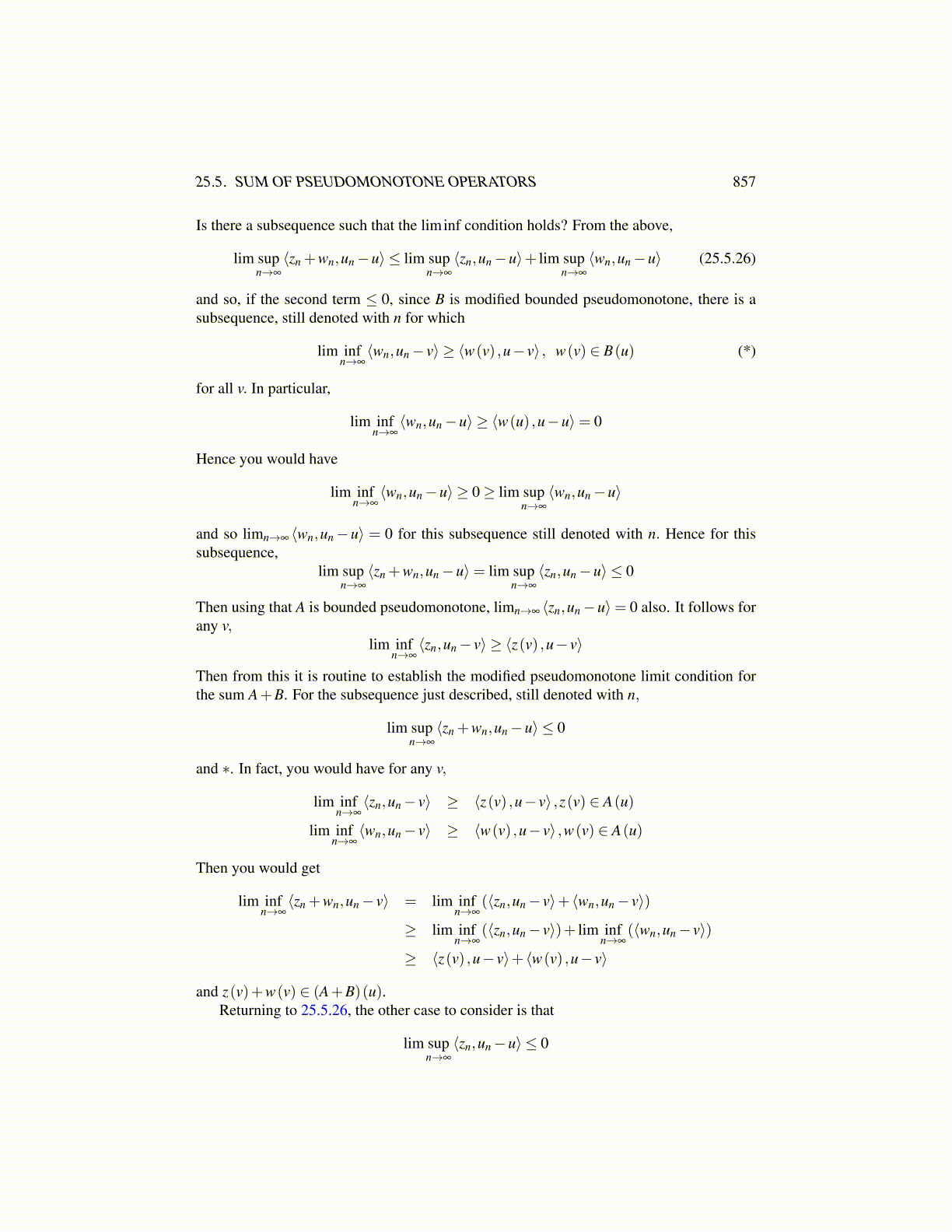
25.5. SUM OF PSEUDOMONOTONE OPERATORS 857
Is there a subsequence such that the liminf condition holds? From the above,
lim supn→∞
⟨zn +wn,un−u⟩ ≤ lim supn→∞
⟨zn,un−u⟩+ lim supn→∞
⟨wn,un−u⟩ (25.5.26)
and so, if the second term ≤ 0, since B is modified bounded pseudomonotone, there is asubsequence, still denoted with n for which
lim infn→∞⟨wn,un− v⟩ ≥ ⟨w(v) ,u− v⟩ , w(v) ∈ B(u) (*)
for all v. In particular,
lim infn→∞⟨wn,un−u⟩ ≥ ⟨w(u) ,u−u⟩= 0
Hence you would have
lim infn→∞⟨wn,un−u⟩ ≥ 0≥ lim sup
n→∞
⟨wn,un−u⟩
and so limn→∞ ⟨wn,un−u⟩ = 0 for this subsequence still denoted with n. Hence for thissubsequence,
lim supn→∞
⟨zn +wn,un−u⟩= lim supn→∞
⟨zn,un−u⟩ ≤ 0
Then using that A is bounded pseudomonotone, limn→∞ ⟨zn,un−u⟩= 0 also. It follows forany v,
lim infn→∞⟨zn,un− v⟩ ≥ ⟨z(v) ,u− v⟩
Then from this it is routine to establish the modified pseudomonotone limit condition forthe sum A+B. For the subsequence just described, still denoted with n,
lim supn→∞
⟨zn +wn,un−u⟩ ≤ 0
and ∗. In fact, you would have for any v,
lim infn→∞⟨zn,un− v⟩ ≥ ⟨z(v) ,u− v⟩ ,z(v) ∈ A(u)
lim infn→∞⟨wn,un− v⟩ ≥ ⟨w(v) ,u− v⟩ ,w(v) ∈ A(u)
Then you would get
lim infn→∞⟨zn +wn,un− v⟩ = lim inf
n→∞(⟨zn,un− v⟩+ ⟨wn,un− v⟩)
≥ lim infn→∞
(⟨zn,un− v⟩)+ lim infn→∞
(⟨wn,un− v⟩)
≥ ⟨z(v) ,u− v⟩+ ⟨w(v) ,u− v⟩
and z(v)+w(v) ∈ (A+B)(u).Returning to 25.5.26, the other case to consider is that
lim supn→∞
⟨zn,un−u⟩ ≤ 0